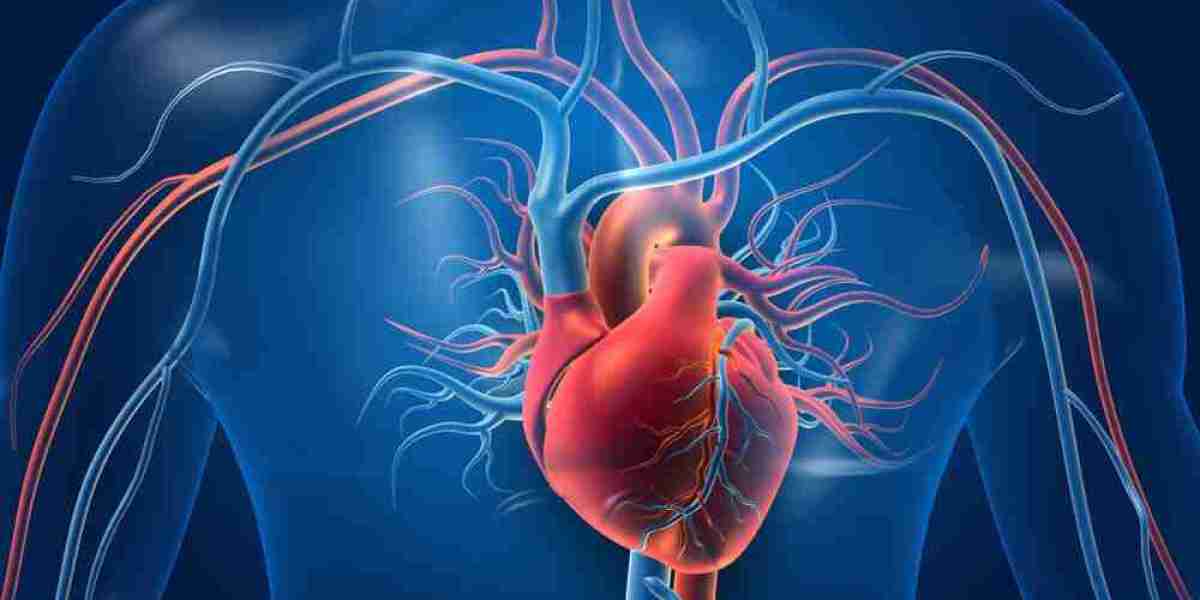Erectile dysfunction (ED) is a common condition that affects millions of men worldwide. While it is often viewed as a sexual health issue, ED can be a signal of deeper, underlying health problems. One of the most significant causes of erectile dysfunction is cardiovascular disease problems related to the heart and blood vessels. In fact, heart disease and blood vessel disease are often closely linked to ED, and understanding this connection is crucial for both preventing and managing both conditions effectively.
In this blog, we will explore the link between heart and blood vessel disease and erectile dysfunction, how these conditions are interconnected, and what steps can be taken to address them.
What is Erectile Dysfunction (ED)?
Erectile dysfunction is defined as the inability to achieve or maintain an erection sufficient for sexual intercourse. While occasional erectile issues are common and can happen due to stress, fatigue, or other temporary factors, chronic ED can be indicative of more serious health issues. ED affects an estimated 30 million men in the United States alone, and its prevalence increases with age. However, ED is not simply a normal part of aging; it often points to underlying medical conditions that need attention.
How Do Heart and Blood Vessel Diseases Relate to ED?
The relationship between cardiovascular diseases and erectile dysfunction lies in the health of the blood vessels. Both conditions are affected by blood flow, and since an erection requires increased blood flow to the penis, any problem that impairs blood circulation can lead to ED. Below, we’ll break down how heart and blood vessel diseases are linked to erectile dysfunction:
1. Atherosclerosis and Reduced Blood Flow
Atherosclerosis, a condition where fatty deposits (plaque) build up in the arteries, is one of the primary causes of heart disease and can significantly impact erectile function. This plaque buildup narrows and hardens the arteries, making it difficult for blood to flow properly. Since an erection requires increased blood flow to the penis, atherosclerosis can impair the ability to achieve or sustain an erection.
Men with atherosclerosis are at a higher risk of developing erectile dysfunction because the arteries that supply blood to the penis can become clogged and stiff. Over time, atherosclerosis can lead to more severe cardiovascular events, such as heart attacks or strokes, and worsen ED.
2. High Blood Pressure (Hypertension)
High blood pressure, or hypertension, is another major risk factor for both heart disease and erectile dysfunction. Chronic high blood pressure damages the blood vessels over time, making them less elastic and more prone to narrowing. This further impairs blood flow throughout the body, including to the penis.
For men with hypertension, the narrowing of blood vessels means that even if they are sexually aroused, their body might not be able to supply enough blood to the penis to achieve an erection. As a result, ED becomes a common problem among individuals with high blood pressure.
Additionally, some medications used to treat high blood pressure (especially beta-blockers and diuretics) can contribute to erectile dysfunction. This makes it even more important for men with hypertension to work closely with their healthcare provider to find the right treatment that addresses both heart health and sexual function.
3. Coronary Artery Disease and ED
Coronary artery disease (CAD) occurs when the coronary arteries that supply blood to the heart become narrowed or blocked. CAD not only increases the risk of heart attacks but can also negatively impact erectile function.
When the coronary arteries are blocked, the heart's ability to pump blood efficiently is compromised, which can affect blood flow to the penis. As with atherosclerosis, the reduced blood flow makes it more difficult to achieve and maintain an erection. This explains why men with coronary artery disease often experience ED as one of the early warning signs of cardiovascular issues.
4. Diabetes and ED: A Double Risk
Men with diabetes, particularly those with poorly controlled blood sugar levels, are at an elevated risk of both cardiovascular disease and erectile dysfunction. High blood sugar can damage blood vessels and nerves, impairing blood flow to the penis and interfering with the nerve signals that trigger an erection. This damage is often compounded by the fact that many men with diabetes also have a higher likelihood of developing heart disease, further increasing the risk of ED.
In addition to the direct effects of diabetes on blood vessels and nerves, diabetic neuropathy can impair the ability of the penis to respond to sexual stimulation, making it more difficult to achieve or maintain an erection.
Why ED Could Be an Early Warning Sign of Heart Disease
Erectile dysfunction often occurs years before more serious cardiovascular events like heart attacks or strokes. For this reason, ED can be an early warning sign of heart disease. The blood vessels in the penis are smaller than those in other parts of the body, and they tend to show signs of damage earlier than larger arteries. As a result, ED may be one of the first indicators that a man is at risk for more severe cardiovascular issues.
Several studies have found that men with ED are more likely to experience heart problems in the future. In fact, ED is considered to be an independent risk factor for cardiovascular disease, meaning that even if a person doesn’t have other obvious symptoms of heart disease, ED may be an early indicator that cardiovascular problems are developing.
Managing ED and Heart Disease: What You Can Do
If you are experiencing ED and have a history of heart disease or other cardiovascular risk factors, it’s crucial to take proactive steps to improve both your heart health and sexual function. Here are some strategies:
1. Consult Your Healthcare Provider
The first step in managing ED in the context of heart disease is to talk to your healthcare provider. They can help identify the underlying cause of your ED and provide appropriate treatment options. This may include medications like PDE5 inhibitors (e.g., Sildenafil or Tadalafil) that improve blood flow to the penis. However, it's important to use these medications under the guidance of a doctor, as they can interact with heart medications and affect your blood pressure.
2. Adopt a Heart-Healthy Lifestyle
A heart-healthy lifestyle is essential for both preventing and managing both ED and heart disease. This includes:
- Regular exercise: Engaging in physical activity helps improve cardiovascular health and blood flow.
- Healthy diet: A diet rich in fruits, vegetables, lean proteins, and whole grains can help manage cholesterol, blood pressure, and blood sugar levels.
- Quit smoking: Smoking damages blood vessels and is a major risk factor for both heart disease and ED.
- Limit alcohol: Excessive alcohol can impair both heart health and erectile function.
- Maintain a healthy weight: Being overweight increases the risk of both cardiovascular disease and ED.
3. Manage Stress and Mental Health
Stress and anxiety are both risk factors for ED and heart disease. Practicing relaxation techniques, such as meditation, deep breathing, and yoga, can help reduce stress levels and improve both your heart health and sexual function.
4. Medications and Treatments
In some cases, medications may be prescribed to manage both heart disease and erectile dysfunction. It’s essential to work with your healthcare provider to find a treatment that addresses both conditions without causing adverse effects.
Conclusion
Erectile dysfunction is more than just a sexual health issue—it can be an early indicator of heart and blood vessel disease. Conditions like atherosclerosis, high blood pressure, coronary artery disease, and diabetes are not only linked to ED but can exacerbate it. Understanding the connection between these conditions is vital for early detection and prevention.
If you experience ED, it’s important to discuss it with your healthcare provider, especially if you have a history of heart disease or other cardiovascular risk factors. With the right lifestyle changes, medications, and medical guidance, you can address both your heart health and erectile dysfunction, improving your overall well-being.







